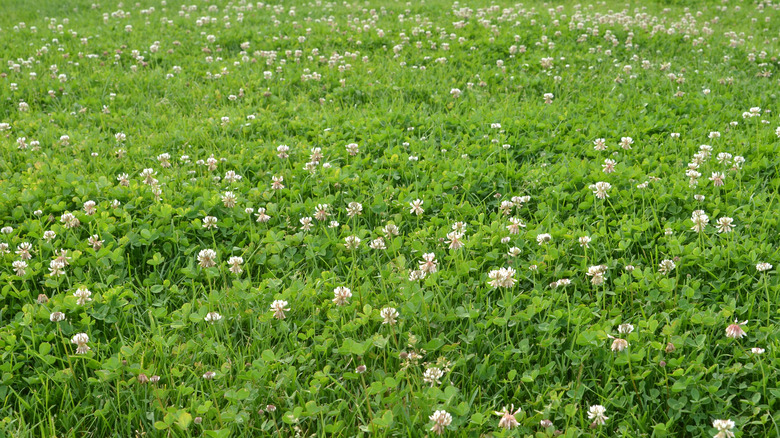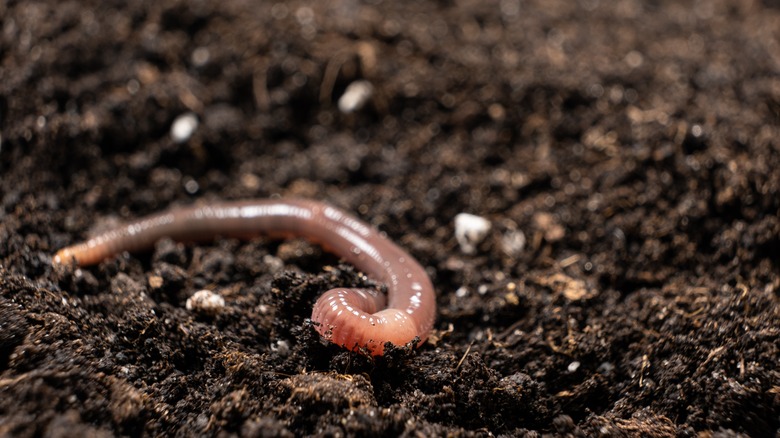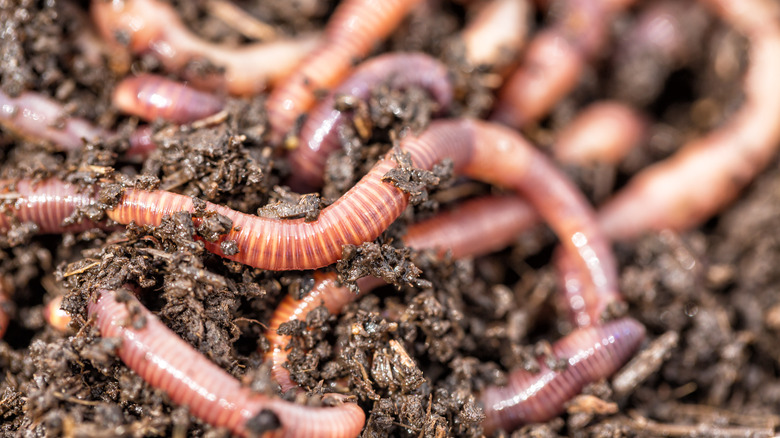The Beneficial Visitor You'll Bring To Your Lawn By Leaving Clover Be
Lawns first came to be in the 1700s and were flaunted by only the rich since they required a lot of upkeep. Today, they still tend to require a lot of maintenance, but the means to do so is far more affordable and achievable for homeowners and isn't something you need a million dollars just to afford. Though modern lawns are pristine seas of fescue and Bermuda, many people add clover to their lawns to improve soil health and overall maintenance.
Clover improves your soil by adding nitrogen and attracting pollinators. An added bonus many homeowners overlook is that clover can attract earthworms. Earthworms are well known for improving vegetable gardens, but they can help your lawn just as well as they can for your edible plants. Most people may consider clover a weed, but changing your perception will help the ecosystem and give you a yard worth boasting about.
Clover attracts earthworms
Adding clover to your lawn is a simple way to attract earthworms. Clover roots produce macropores, which are pockets in the soil that allow air and water to pass through. Earthworms tend to travel through these as they burrow in the soil and create worm castings, so a well-aerated lawn is attractive to them. As clover completes its lifecycle in your lawn, it will leave behind decomposing roots, providing a delicious buffet to earthworms. Worms eat decomposing organic matter, so having a lawn full of it is a big reason for them to stick around.
Fortunately, you don't need a lawn full of clover to attract earthworms. You can add clover seeds to your existing lawn or let the clover that pops up on its own stay there. Earthworms won't pop up overnight; it'll take some time for them to find your lawn and multiply. However, it's well worth the wait, and you'll see the benefits once the worms are established.
How worms benefit your lawn
Why should you bother letting worms populate your lawn? There are many intriguing reasons to do so. Earthworms will contribute to the macropores that attract them, creating even more as they burrow through the soil looking for food. Aerated soil helps roots row better by reducing compaction and allowing oxygen to pass through. When roots have enough oxygen, they can access water and nutrients better, resulting in healthy plants.
Earthworms also improve the overall soil health by creating worm castings, which are the excrement left behind after worms finish eating. It sounds a little gross, but it looks like dark, rich soil that gardeners get excited to grow in. Worm castings add lots of nutrients and improve water retention in the soil, which can eventually help you water the lawn less often.
Worms will take care of any kind of decomposing organic matter. If you leave leaves on your lawn over winter, worms will help break it down into nutrients for your grass. They'll also help dead bugs and other animals decompose, as well as any stray plant and animal matter that ends up in your lawn, including the kind of matter left behind by dogs.


